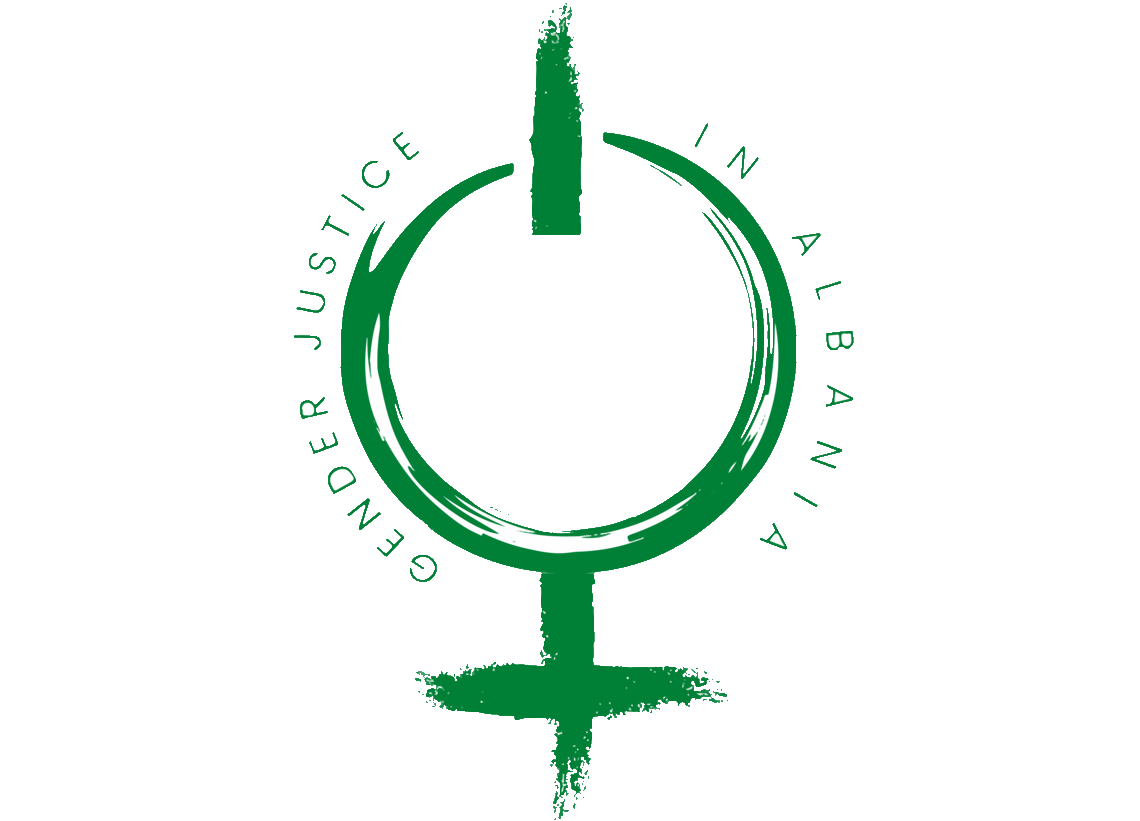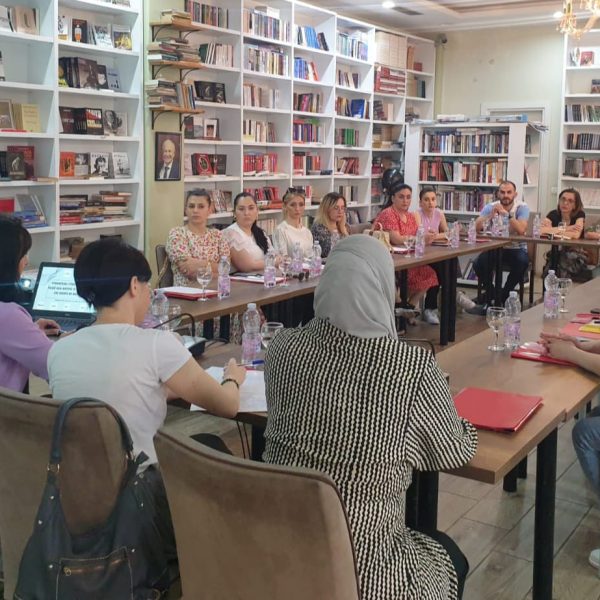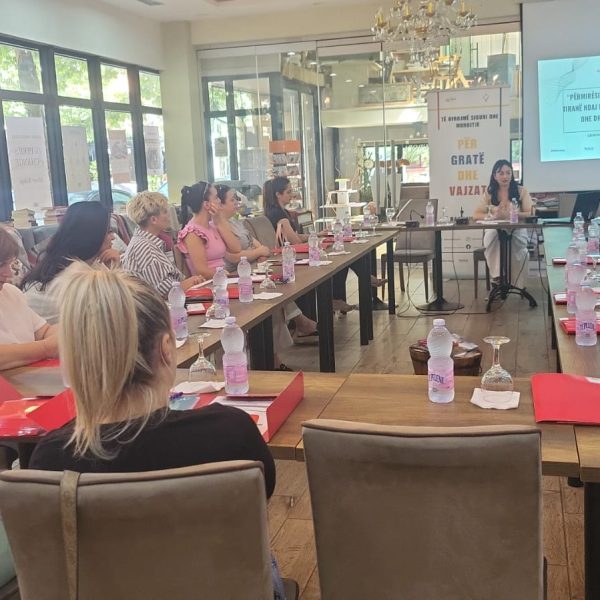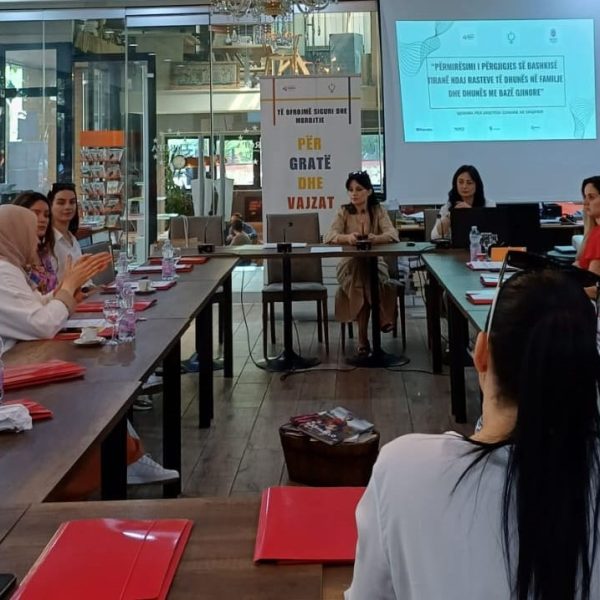In the framework of the project “Providing security and effective protection for women and girls victims of domestic violence and gender-based violence in the Municipality of Tirana”, during the month of June (specifically on 20, 22 and 27 June), the Center for Gender Justice in Albania has organised the trainings with the topic “Improving the response of the Municipality of Tirana to successfully address the cases of domestic violence and gender-based violence”.
During the trainings, 53 employees of the Administrative Units were informed about:
- implementation of legal changes of the law no. 9669, date 18.12.2006 “On measures against violence in family relationships”;
- identification of risk factors that affect the safety, life and health of women and girls, victims of domestic violence and gender-based violence;
- case management, referral and monitoring.
At the end of the trainings, the participants were organized in focus-groups where they discussed about the difficulties in implementing the legislation in practice which is also the main concern for many service providers. For this, good practices for successful case management were shared.
The trainings and focus-groups were conducted in close cooperation with Tirana Municipality in support of the Local Action Plan for Gender Equality 2022-2024 of the Municipality, where the fourth pillar is dedicated to increasing the level of security, protection and efficiency of the multi-sectoral approach for women and girls, including empowerment of coordinated multi-sectoral approaches against domestic violence and gender-based violence. In this framework, it is also foreseen to strengthen the capacities of the employees of the Administrative Units to adequately address cases of domestic violence and gender-based violence.
The activities were organised with the support of the regional project “SMART Balkans – Civil Society for Values of Commons in the Western Balkans” implemented by Centar za Promeno členni Društva (CPCD) in partnership with the Institute for Democracy and Mediation (IDM) and the Center for Research and Policy Making (CRPM), financially supported by the Ministry of Foreign Affairs of Norway ( NMFA).










